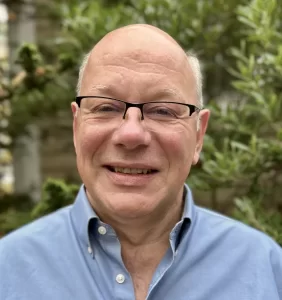
Alexandre E. Dauge-Roth
Professor of French and Francophone Studies
Associations
French and Francophone Studies Department Chair
About
Alexandre Dauge-Roth, Ph.D University of Michigan
Alexandre Dauge-Roth is Professor of French and Francophone Studies. His scholarship and teaching investigate the social dynamics and polemical tensions between personal memory and collective trauma through testimonial literature, cinema, and documentaries. He published Writing and Filming the Genocide of the Tutsi in Rwanda: Dismembering and Remembering Traumatic History in 2010 and co-organized in 2014 an interdisciplinary conference and a film series in Paris on the representations of the Genocide against the Tutsi of Rwanda: Rwanda 1994-2014 : constructions mémorielles et écriture de l’histoire. He has also explored social practices of exclusion and rebranding of the self in the context of the AIDS pandemic in France as well as in Sub-Saharan Africa through the works of Koulsy Lamko and Fanta Regina Nacro. He discussed graft and transplant as prominent metaphors for the migrant and the host in the works of Malika Mokeddem and Jean-Luc Nancy. In his research on contemporary French literature, he published essays on Hervé Guibert, François Bon, Georges Perec, and Claude Simon. His teaching addresses issues of social belonging and identity through the historical, political, and medical representations of borders and the body in contemporary French and Francophone literature and film. During the academic year 2019-20, he directed the Hamilton in France program in Paris. His current research project “(Un)Framing (In)Justice” focusses on the representations of law and justice in Francophone literature and cinema. He is currently Division Chair for the Humanities 2024-2027.
Teaching (course selection)
- French 240F “Borders and Disorders in French and Francophone Literature and Film”
- French 375 “The French Dis/Connection in Contemporary Literature”
- French 379 “Documenting the Genocide of the Tutsi in Rwanda”
- French SH28 “Social Pulse and Documentary Impulse”
- French S38 “Learning With Orphans of the Genocide in Rwanda”
- INDS 100. “African Perspectives on Justice, Human Rights, and Renewal”
Recent Theses mentored (selection)
- “Repenser le rêve français: Immigration et déconstruction du mirage de la ‘France Eldorado’ dans les œuvres de Fatou Diome et d’Alain Gomis”(2023)
- “Acceptance ou Soumission, la République française face à l’Islam et la laïcité : Abd Al Malik face à Michel Houellebecq” (2023)
- “Un Paradis peut en cacher un autre: Analyse sociologique de 3 générations de Franco-Américains” (2022)
- “De l’aspiration enfantine aux explosions sociales : comment le réalisateur Nabil Ayouch (re)présente les groupes marginalisés au Maroc” (2019)
- “Le réalisme et le symbolisme dans la représentation la Grande Guerre dans J’accuse d’Abel Gance, Les Croix de bois de Raymond Bernard et Un très long dimanche de fiançailles de Jean-Pierre Jeunet” (2017)
- “Quand filmer c’est faire silence, quand dire c’est donner à voir le hors-champ : Le triptyque de Raoul Peck, Philippe Van Leeuw et Kivu Ruhorahoza face à l’oblitération génocidaire” (2015)
- “Les Mutations d’un lieu de mémoire. Le Vélodrome d’Hiver au cinéma : 1970 et 2010” (Honors 2015)
- “Les doubles-soi : la quête de l’identité dans le Ventre de l’Atlantique par Fatou Diome et Riwan ou le chemin de sable par Ken Bugul” (2014)
- “Attachements et détachements mémoriels dans L’Acacia de Claude Simon ou le processus d’écriture comme procès des représentations” (Honors 2013)
- “Une nouvelle attente du voyage dans L’usage du monde de Nicolas Bouvier” (2012)
- “Le Retour de la Chine en Afrique: une deuxième colonisation ou un partenariat mutuellement avantageux?” (2012)
- “Du Fait divers au fait littéraire: L’art de créer un dialogue face à l’innommable” (2012)
- “Moving Beyond ‘La Françafrique’” (2008)
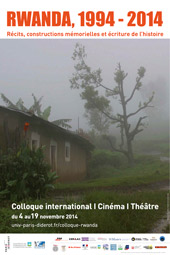 |
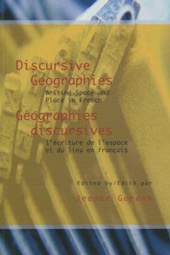 |
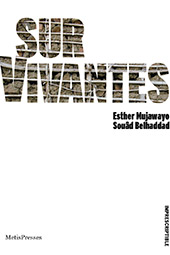 |
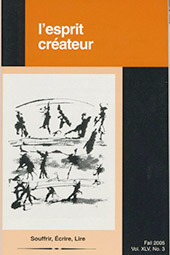 |
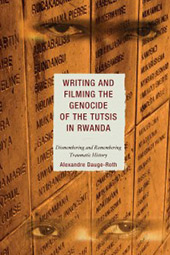 |
 |
Publications (selection)
- “Face aux témoignages des Tutsis du Rwanda : pour une pédagogie transformatrice de la lecture.” In Silke Segler-Meßner & Isabella von Treskow eds. Traumatisme et mémoire culturelle : France et Espaces francophones. Berlin : De Gruyter. 2023. 389-408.
- “Filming with Orphans of the Genocide: A Transformative Dialogue through A Double-Lens Approach.” Rangira Béa Gallimore & Gerise Herndon eds. Art and Healing: Gender, Genocide, and Aesthetic Expression.” Lincoln: University of Nebraska Press. Fall 2019. 109-126.
- “Conferring Visibility to Trauma within Rwanda’s National Reconciliation: Kivu Ruhorahoza’s Disturbing and Salutary Camera.” In Nick Hodgin & Amit Thakkar eds. Scars and Wounds: Trauma on Film in National and International Contexts. London: Palgrave MacMillan. 2017. 77-100.
- “Le cinéma face à l’oblitération génocidaire. Silences éloquents et hors-champ intérieur chez Philippe Van Leeuw et Kivu Ruhorahoza.” Co-authored with Ayse Irem Ikizler. Présence Francophone 85 (Winter 2015) 114-136. Special issue on «Twenty years after the 1994 genocide: The Artistic Production on and in Rwanda».
- “Vingt ans après… témoigner pour faire corps avec son présent.” Foreword and Afterword to Élise Rida Musomandera Le Livre d’Élise. Paris : Les Belles Lettres, collection “Mémoires de Guerre.” 2014. 11-14 & 97-102.
- “La rencontre testimoniale ou le devoir d’hospitalité et d’interruption face à l’ob-scène.” In Emmanuel Alloa & Stefan Kristensen eds. Témoignage et survivance. Genève : MétisPresses, collection “Imprescriptible.” 2014. 203-224.
- “Fostering a Listening Community Through Testimony: Learning with Orphans of the Genocide in Rwanda.” Journal of Community Engagement and Scholarship. Vol.5.2 (Fall 2012).
- Writing and Filming the Genocide of the Tutsi in Rwanda: Dismembering and Remembering Traumatic History (Lexington Books, 2010)
- “Face à l’oblitération, témoigner pour se ressaisir vivante.” Afterword to Esther Mujawayo and Souâd Belhaddad SurVivantes. Genève : MétisPresses, 2011. 281-293.
- “Du non-lieu au lieu-dit: Plaidoyers de François Bon pour une urbanité contemporaine.” (with an afterword from François Bon) in Discursive Geographies: Writing Space and Place in French. Ed. Jeanne Garane. Amsterdam: Rodopi, 2005. 237-266.
- “Staging Dialogues and Performing Encounters in French AIDS Narratives.”French Forum. Vol. 29.3 (Fall 2004): 95-109.
- “L’intimité à l’épreuve de L’intrus de Jean-Luc Nancy et de L’Interdite de Malika Mokeddem: la greffe comme (des)saisie de soi” L’esprit créateur Vol. XLIV.1 (Spring 2004): 27-37.
Expertise
Links
- Official C.V.
- Short term in Rwanda featured in “International Educator”
- Open to the World: Foreign becomes familiar in Roger Williams Hall
- Films, speakers at Bates College examine Rwandan genocide
- French professor recognized for integrating service, teaching
- Rwandan genocide survivor, Berthe Kayitesi, to speak at Bates
- Rwandan filmmaker to present work about his family, 1994 genocide
- Bates students’ Rwandan initiative named Project for Peace
- Bates hosts international conference on Rwandan genocide
- Off-Campus Short-term Rwanda
- What I mean when I say Negotiate
- What is Truth? Co-taught FYS
- A Place We Can Talk. Bates students learn with, not from, orphan survivors of the 1994 genocide in Rwanda
- Alexandre Dauge-Roth wins 2015 Kroepsch Award for Excellence in Teaching
- Genocide survivors share stories at Bates College (Amjambo Africa 2024)
- Refusing to let the killers to have the last word, survivors of the genocide in Rwanda share their stories with bates students (March 2024)